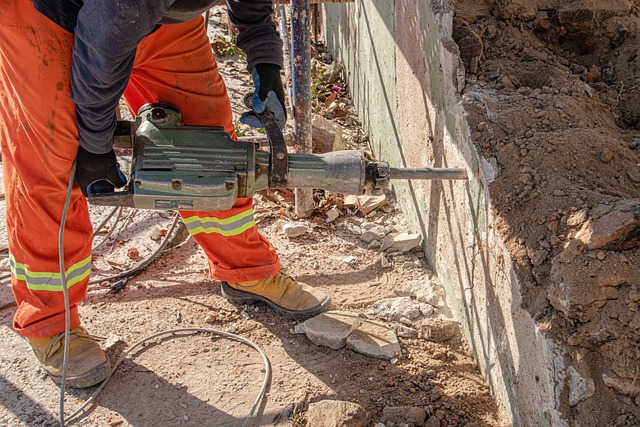Identifying specific needs is crucial for both homeowners and business owners looking to install or repair roofs. Homeowners prioritize aesthetics and energy efficiency, while businesses demand robust solutions for high-traffic areas and environmental considerations. Certified roofing contractors are essential for expert installation, repairs, and replacements, ensuring structural integrity and following industry standards. They guide material selection based on durability, visual appeal, and cost-efficiency, offering options like asphalt shingles, metal roofs, wood shakes/shingles, and tile roofs. Regular maintenance by these contractors is vital for extending roof lifespan and energy efficiency. Engaging licensed professionals ensures legal compliance, risk management, and peace of mind with transparent pricing and insurance coverage.
Roofs protect our homes and businesses from the elements, but choosing the right roofing solution can be overwhelming. This comprehensive guide navigates the complex world of roofing for both residential and commercial spaces, highlighting the importance of understanding unique needs. Discover the crucial role played by certified roofing contractors in ensuring durable installations. Explore diverse roofing materials, installation processes, maintenance tips, common issues, budget considerations, legal aspects, and essential contractor selection criteria.
Understanding Your Roofing Needs: Homes vs. Businesses

When it comes to roofing, understanding your specific needs is key. Whether you’re a homeowner or business owner, the roof over your head serves a vital function—protecting you from the elements. However, the requirements differ significantly between homes and businesses.
For homeowners, the primary focus often lies in aesthetics and energy efficiency. Certified roofing contractors can help select materials that complement the property’s style while offering insulation benefits. On the other hand, businesses require robust solutions tailored to high-traffic areas, security, and sometimes even environmental considerations. Commercial roofs must withstand heavier loads, frequent foot traffic, and may need specialized systems for ventilation and cooling. Thus, choosing the right roofing contractor is crucial, ensuring they possess the expertise and certifications necessary for your particular needs.
The Role of Certified Roofing Contractors

When it comes to roofing for homes and businesses, the role of certified roofing contractors cannot be overstated. These professionals bring a wealth of knowledge, experience, and skill that is essential for ensuring any roofing project is done right. They are equipped to handle various types of roofs, from traditional shingles to more complex systems, and possess the tools and techniques needed to install, repair, or replace roofs efficiently and safely.
Certified roofing contractors also play a crucial role in upholding the structural integrity of buildings. By adhering to industry standards and best practices, they ensure that every roof is properly sealed, flashed, and ventilated, preventing water damage and promoting longevity. Moreover, their expertise extends to choosing the right materials, considering local climate and weather patterns, and providing expert advice on maintenance and upkeep, ensuring your roof remains a protective barrier for years to come.
Types of Roofing Materials for Optimal Protection

When it comes to protecting your home or business, choosing the right roofing material is paramount. Certified roofing contractors often recommend materials that balance durability, aesthetics, and cost-effectiveness. Asphalt shingles are a popular choice due to their affordability and ease of installation. They offer a wide range of styles and colors, making them versatile for various architectural designs.
For enhanced protection against extreme weather conditions, metal roofs have gained popularity. These durable materials are known for their longevity and ability to withstand high winds, heavy rain, or even snow accumulation. Additionally, metal roofing is an excellent choice for those seeking energy efficiency as it reflects heat, reducing cooling costs. Other options include wood shakes or shingles, which provide a classic look but require more maintenance, and tile roofs, known for their beauty and fire resistance.
Installation Processes: Step-by-Step Guide

Roof installation is a complex process that requires skilled hands and precise execution. Certified roofing contractors begin by assessing the structure, ensuring it’s sound and ready for a new roof. They then prepare the surface, cleaning and patching to create a smooth canvas for the new shingles or roofing material. The next step involves setting up the roof trusses or framing, providing the structural support needed to hold the roof in place.
Contractors carefully unroll and install underlayment, creating a protective barrier between the roof deck and the elements. After that, they lay down the chosen roofing material—asphalt shingles, metal panels, or tiles—in a systematic pattern, securing them with nails or screws. Gutters and downspouts are then attached to direct rainwater away from the building, completing the installation process. This step-by-step approach ensures a durable, weatherproof roof that stands the test of time.
Maintaining Your Roof: Tips from Experts

Regular maintenance is key to prolonging the lifespan of your roof, whether it’s for a home or business property. Certified roofing contractors recommend inspecting your roof at least twice a year, looking out for signs of damage like missing shingles, leaks, or mold growth. A thorough cleaning of gutters and drains is also essential to prevent clogs that can cause water damage.
During these checks, professionals suggest addressing issues promptly to avoid bigger problems down the line. This includes repairing or replacing damaged shingles, sealing leaks, and treating any signs of decay or rot. Regular maintenance not only keeps your roof in top condition but also ensures energy efficiency by preventing heat loss or gain through gaps or damaged areas.
Common Roofing Issues and How to Spot Them

Roofing issues can go unnoticed for extended periods, often until they become severe and costly to repair. As such, it’s essential to learn how to spot common problems that may indicate the need for professional attention from certified roofing contractors. One of the most visible signs is missing or damaged shingles, which can be caused by extreme weather conditions or simply age. Regular inspection should also account for loose or peeling shingles, as these could be early indicators of structural damage or rot.
Another common issue is granule loss in asphalt shingles, often seen as dark spots or bare areas. This is a result of wear and tear or improper installation. Moreover, changes in the roof’s color or texture can point to underlying problems. For instance, discolored or blistered paint may signal moisture intrusion, while cracks or deformities could be signs of structural instability. Prompt identification of these issues by homeowners or business owners can help prevent further damage and ensure timely intervention from expert certified roofing contractors.
Cost Considerations: Budgeting for Roofing Projects

When budgeting for a roofing project, it’s essential to consider both the immediate and long-term costs. One of the primary factors is choosing between different roofing materials. Certified roofing contractors often recommend options that balance affordability with durability, such as asphalt shingles, which are cost-effective but may require more frequent replacements compared to metal or tile roofs.
Additionally, labor costs vary significantly based on region and complexity of the job. Engaging certified roofing contractors who offer transparent pricing can help homeowners and business owners allocate funds effectively. Remember that a well-installed roof is an investment, and proper budgeting from the outset ensures a more seamless and stress-free experience throughout the project.
Legal Aspects and Insurance Requirements

When it comes to roofing projects for homes or businesses, understanding the legal aspects and insurance requirements is paramount. Engaging with licensed and certified roofing contractors ensures compliance with local building codes and regulations, which are designed to protect both property owners and the safety of the community. These professionals know the ins and outs of permits, inspections, and necessary certifications, ensuring your project adheres to all legal standards.
Moreover, working with insured roofing companies is crucial for risk management. Insurance protects against unforeseen events like accidents, damages to properties, or defects in workmanship. It provides peace of mind, shielding property owners from potential financial burdens and ensuring that any issues arising during the roofing process are addressed appropriately. Always verify the contractor’s insurance coverage to avoid complications down the line.
Choosing the Right Contractor: Essential Checklist

Choosing the right contractor for your roofing project is a crucial step in ensuring a successful outcome. When selecting a roofing company, whether for a home or business, it’s essential to verify their credentials and experience. Look for certified roofing contractors who possess industry-recognized qualifications and licenses. These professionals should have expertise in various roofing styles and materials to cater to your specific needs.
An excellent checklist includes verifying the contractor’s insurance coverage, checking online reviews from previous clients, and requesting references. You can also assess their reputation by examining the quality of their past work and ensuring they adhere to safety standards. A reliable contractor should provide transparent estimates, clearly outlining costs, materials, and timelines, allowing you to make an informed decision.
